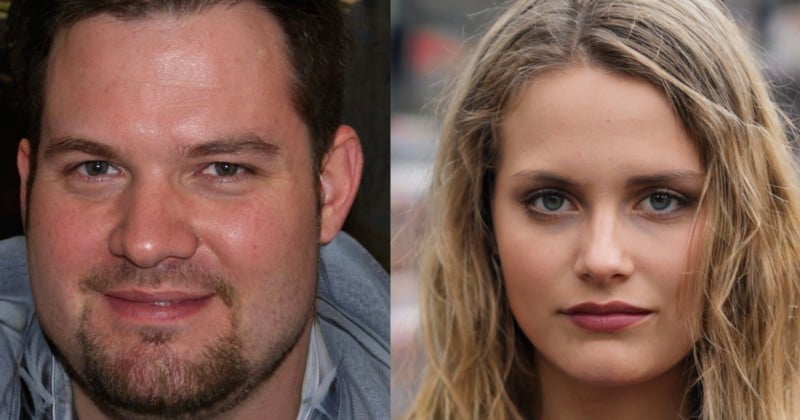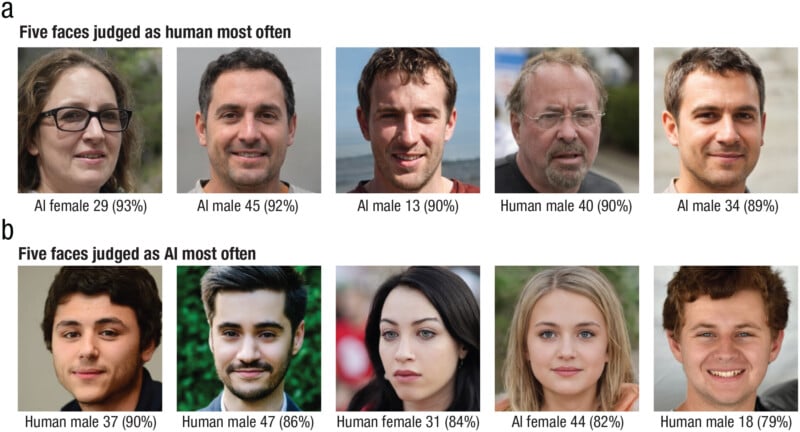Scientists Say AI-Generated White Faces are More Realistic Than Photos

Researchers have found that artificial intelligence (AI) generated white faces are “more realistic” than actual human faces in photos.
According to a new study by a team of researchers from Australia, the U.K., and the Netherlands, people are more likely to think pictures of white faces generated by AI are human than photographs of real individuals.

In the study, around two out of three white-faced AI-generated photos were perceived as being human.
However, scientists found this is not the case for faces of people of color — possibly because the algorithm used to generate AI faces was largely trained on images of white people.
“The reason why we think this is happening … is that when we are training these algorithms we’re putting up all the same biases that already exist into the world into them,” Dr, Amy Dawel of the Australian National University’s College of Health and Medicine department tells Sky News.
“In this case, about two-thirds of the faces that the AI was trained on were white, which means it’s doing a better job producing more realistic white AI faces out the other end.”
Participants were shown 100 real human faces and 100 AI-generated faces at random. 61% of the time people thought the AI images were real people, but only 51% of the time did they think the real human faces were real.
According to scientists, AI faces now appear more “real” than human ones due to a phenomenon they call “hyperrealism”.
They say that people do not often realize that they are being deceived and are so confident in their belief that a deepfaked face is real.
The researchers believe their findings have important implications in the real world, including in identity theft and misinformation, with the possibility that people could easily end up being duped by deepfaked digital impostors.
“Concerningly, people who thought that the AI faces were real most often were paradoxically the most confident their judgments were correct,” Elizabeth Miller, of The Australian National University and a co-author of the study, tells The Times of London.
“This means people who are mistaking AI imposters for real people don’t know they are being tricked.”
Image credits: All photos by thispersondoesnotexist.com.